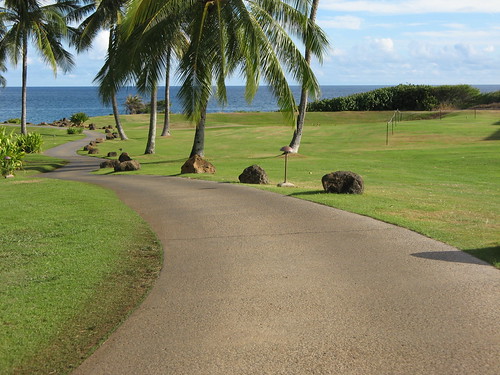 For the 2001 Thanksgiving break, my wife and I went to Bhutan. We flew in to New Delhi and made our way by land, traversing the northeastern part of India before crossing into Bhutan. That was the only time that I flew all the way to India from the US, and yet didn't visit my parents or meet a single relative of mine. It was two months after 9/11 and we were seeking to get away to some place really remote for a few days.
For the 2001 Thanksgiving break, my wife and I went to Bhutan. We flew in to New Delhi and made our way by land, traversing the northeastern part of India before crossing into Bhutan. That was the only time that I flew all the way to India from the US, and yet didn't visit my parents or meet a single relative of mine. It was two months after 9/11 and we were seeking to get away to some place really remote for a few days.I recall one image from our trip back from Thimpu, after we'd spent a few days there. We'd hired a long-distance taxi to take us from the capital Thimpu to Phuntsholing at the Indian border. Those who live in the US are the elite class by default in Bhutan. The locals travel mostly by bus.
The road to the Indian border, though it was the single most important road in the entire country, was in very bad shape. The mountainous, winding road had huge potholes and was no more than a dirt road for long stretches.
We'd sometimes drive past clusters of workers repairing the road.
“Indians. Road work people,” our driver said.
Their methods were very manual, and the equipment used to melt tar was antiquated. The workers had whole families there working, men, women and children. From their attire and features, I could see that the workers were unmistakably Indian. It looked like Bhutan was importing its labor from nearby India.
And sometimes, our taxi would overtake groups of these road workers who were on the move. In the merciless high-altitude sun, they simply walked to their next assignment. Presumably, they walked for miles and miles because we were in the mountains, in the middle of nowhere
I remember them vividly. Men in shirts and dhotis that had turned brown in the dirt. Women in saris, some with a child perched on their waist. Small kids running ahead, carrying plastic bottles with water for their journey.
The men and women walked while balancing one round cloth bundle on their heads. It was a bundle the size of a pillow, made by tying the opposite ends of a dhoti or a sari. It contained everything they owned.
My wife and I pride ourselves on traveling light. We'd each taken only as many things as would fit in our backpacks for the entire two week trip.
But the reason I still remember the image of these workers is because of the thought that crossed my mind as our taxi overtook the workers: my backpack in the trunk of the taxicab for this short trip was bigger than those bundles, and had far more things than the entire life possessions of any of these migrant workers.
Here's an earlier post on possessions: The evolution of tourist kitsch

 Ram
Ram





No comments:
Post a Comment